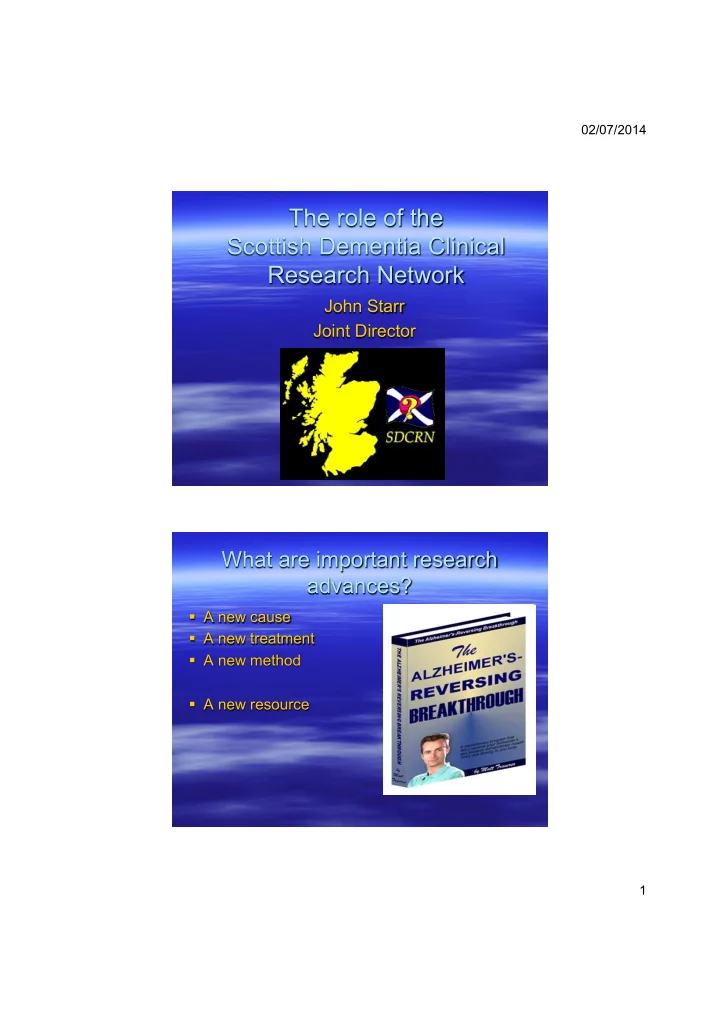

02/07/2014 The role of the Scottish Dementia Clinical Research Network John Starr Joint Director What are important research advances? A new cause A new treatment A new method A new resource 1
02/07/2014 Resources for research Need to piece resources together Research Networks 2
02/07/2014 Network aims Support existing clinical dementia research in Scotland Build dementia research capacity – Researchers’ training & linking – Direct support of studies – Register of potential participants Network structure All mainland Scottish Health Boards Each has clinical lead Each has clinical research officer(s) Overall network manager & database manager Advisory board with SDWG, Alzheimer Scotland etc 3
02/07/2014 Direct support of studies Adopt existing studies – Clinical research – Includes NHS staff, patients or facilities Provide help when applying for new studies – Provision of participants – Training – Direct involvement of staff Pilot studies The Register 4
02/07/2014 Scottish Dementia Research Interest Register Register for people with dementia or related cognitive disorder Register for carers MREC & R&D approved Secure server database 3,000+ recruited so far across Scotland Allows – Details to be recorded for future contact – Linkage to other health-related databases Carer register Name Address Telephone number Date of birth Often consent along with person with dementia, but not necessary to do so – e.g. can have bereaved carers 5
02/07/2014 Person with dementia or related cognitive disorder register Personal details Consent details Diagnosis Comorbidities & Medication Sensory impairments Communication difficulties Assessments – Cognitive, functional, behavioural 6
02/07/2014 No SDCRN studies of music so far Current belief that it is a “good thing” – Playlist for Life – Singing for the Brain Current literature – 295 Medline articles Dementia/AD AND Music/ Musical therapy – 25 RCTs – Most for agitation – Some for mood – A few for cognition What musical genres? Big Band - 1 Classical – 3 (2 Baroque) Participant chosen – 3 Percussion & Rhythmic - 2 Singalong - 2 Unspecified – 12 Live music more effective than recorded 7
02/07/2014 The future of music in dementia research in Scotland? Thank you Please contact John Starr for further information – jstarr@staffmail.ed.ac.uk – 0131 650 4340 8
Recommend
More recommend